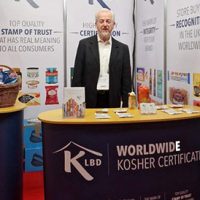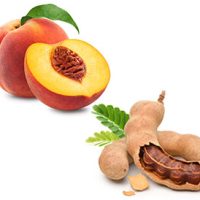The Natural & Organics Show (NOPEX) will be taking centre stage once more at…

Gaining an Edge in New Product Development
In the food industry developing new products takes many factors for innovative companies to make an impact in the marketplace. Expertise in processing techniques, packaging materials, legislation and ingredients is required to keep pace with the preferences and demands of the ever more discerning consumer. It is supremely important to define the optimum target market for a particular product and undertake market research every step of the way; from inception and design through to the post-launch phase.
Brands originally created for a specific market will constantly need to adapt and evolve to keep pace with forward thinking competitors and satisfy consumer demand. Statistics from the Food and Drink Federation indicate that UK consumers are generally receptive to new products and the five largest retailers present an average of 8,500 new products for sale per annum. Products become routinely discontinued as retailers react to trends in consumer demand, but changes in consumer preferences and lifestyle can just as easily lead to ground-breaking opportunities for food and drink businesses and entrepreneurs.
Today, no company can afford to stagnate with a fixed product range and outlook, but the transition can prove very difficult. General manager of Hipp Organic, John Alloway, recently wrote how some dynamic European companies struggled to apply their existing blueprint for a ‘complex and diverse UK audience’ and that the plan for Hipp Organic was to move beyond babyfood into wider babycare, with the launch of a new range of baby skin products. ‘As leading brands, we need to be bold, confident and take a risk. It’s our responsibility to drive innovation’.
A new analytical tool to predict new product development (NPD) prospects has been launched by Nielsen to test the viability of product ideas up to three times faster than is currently possible. As reported in The Grocer by Giles Watts, UK lead for the Nielsen innovation practice, ‘It’s highly predictive of what would happen if you launched, and there is only a 15% chance of success without first testing’. He went on to say that a definition of success is agreed with individual clients and takes into account factors including take-up and sales potential. ‘The users have to upload their concept documents – images and marketing information – free of charge and at that point pay for testing with the fee based on the size of the undertaking’.
The drive for innovative health and wellbeing products is not just confined to the boardroom. Claire Nuttall has over 20 years experience working in the world of branded and own label innovation as founder of ‘The Brand Incubator’, but it is her experience as a parent that has been a driving force in the search for innovative food products. ‘We want brain food’, has been Claire’s mantra concerning the gap in the ‘lunchbox’ category for school aged children. ‘I want to give them brain food that helps them concentrate and get the most out of their lessons, to prevent tiredness. These are the same things I hear from other mums when talking about snacking, drinking soft drinks and eating biscuits’. Claire believes that new sources of plant based omega-3s could help to address this need, ‘for example flax seed, hemp seed and ancient grains’. Claire adds that ‘higher and better quality complete protein solutions would help too and that amino acids are vital to maintaining good mood and concentration, especially GABA, tryptophan, theanine and glycine, of which children often have low-normal levels’. She also stresses the importance of hydration and feels that’water-plus options are needed such as coconut water and other alternatives with high potassium and micronutrient content’.
‘Eat Right, Stay Brilliant’ is the motto of highly successful London-based food and drinks company, Rude Health, which celebrated its tenth anniversary in the spring of this year. KLBD kosher certified Rude Health is continually producing new and interesting products to its range and prides itself on only using normal kitchen ingredients, with nothing artificial or refined added. Renowned for being one step ahead in a fiercely competitive market, Innovations and Independents Sales Manager at Rude Health, Bertel Haugen, described their unique style of NPD as follows: ‘As an innovative, challenger brand, our NPD is largely based on gut feeling. We all live the trends. We visit markets, restaurants and retailers and spend as much time as we can outside of the office eating food. So, we don’t feel it necessary to read trend reports because they tend to be behind. All members of the Rude Health team participate in all stages of new product development, from coming up with ideas, to tasting recipes and to the pack design itself. This way we have managed to stay ahead of the trends and innovate consistently for more than 10 years’.
Liz Graham, Freelance Food Scientist, typically works with clients who have a product and flavour profile they want to meet and she helps them achieve that through developing the technical requirements and managing food safety through shelf life and HACCP principles, as well as understanding key ingredients and production processes. Describing the approach Liz advises that the ‘ taste profile is usually achieved through ingredient quality; consumers are becoming more and more discerning and know when something is pretending to be what it’s not. There’s a real thirst for newness in the industry right now, and sometimes the simplest way this is achieved is by making something the right way with the best ingredients available. With the influx of new food categories such as the wellness sector and technologies like HPP cold processing, I am also seeing a return to traditional technologies like pickling and natural fermentation to offer consumers something different and unique to the standard food production methods’.




